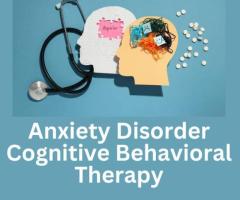One prevalent mental health issue that can have a big influence on daily living is anxiety disorder. One notable example of a very successful treatment strategy is cognitive behavioral therapy or CBT. By addressing erroneous thought patterns and actions that fuel anxiety disorders cognitive behavioral therapy (CBT) encourages more constructive coping strategies. People replace their unrealistic views with realistic ones by learning to identify and confront irrational ones through organized sessions. They also learn useful skills, such as progressive exposure to scary situations and relaxation techniques, to control the symptoms of anxiety. Cognitive behavioral therapy helps people take back control of their ide...
One prevalent mental health issue that can have a big influence on daily living is anxiety disorder. One notable example of a very successful treatment strategy is cognitive behavioral therapy or CBT. By addressing erroneous thought patterns and actions that fuel anxiety disorders cognitive behavioral therapy (CBT) encourages more constructive coping strategies. People replace their unrealistic views with realistic ones by learning to identify and confront irrational ones through organized sessions. They also learn useful skills, such as progressive exposure to scary situations and relaxation techniques, to control the symptoms of anxiety. Cognitive behavioral therapy helps people take back control of their ideas and feelings, which promotes long-term resilience.



